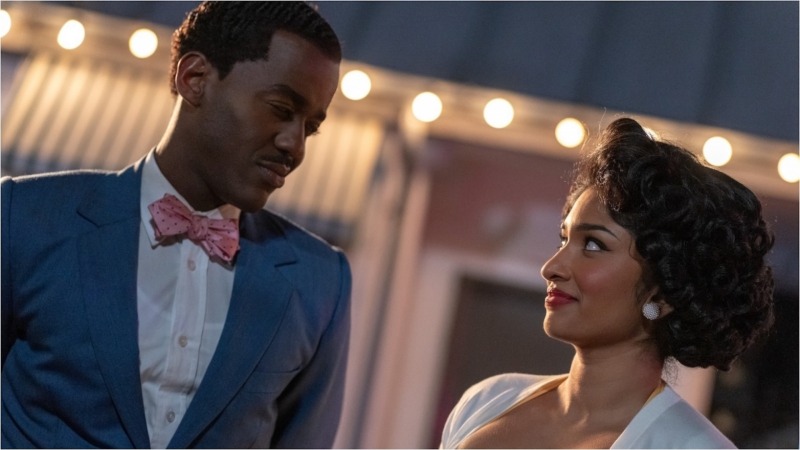Doctor Who’s Fourth Wall Breaking Love Letter to Fandom Is Something Every Sci-Fi Franchise Could Learn From
(Photo: James Pardon/BBC Studios/Disney/Bad Wolf)
“Lux,” the second episode of Doctor Who’s second season on Disney+, is memorable for many reasons. The hour not only features a creepy, singing animated villain voiced by Alan Cumming, but a trip back to 1950s Miami, a few choice bits of film history, and a rare fourth-wall breaking, supremely meta moment that sees the Doctor literally forced to question his own reality in a brand new way. An hour that’s both an entertaining adventure and a heartfelt rumination on the power of storytelling to change the world for the better, it’s Doctor Who at its most joyous and relevant, in ways that every one of its genre siblings could stand to take note of.
This episode marks the first proper TARDIS adventure for Ncuti Gatwa’s Fifteenth Doctor and his new companion, Belinda Chandra (played by Varada Sethu). The pair is still getting used to one another—poor Belinda just wants to go back home and the Doctor is struggling to figure out why he can’t get her there—when they arrive in historical Miami and are thrust into the mystery of a seemingly haunted cinema where over a dozen people vanished without a trace one night. The culprit is a god called Lux Imperator, a singing and dancing cartoon with the power to control light. Lux traps our heroes within the world of film—as animated versions of themselves, no less—and to free themselves, the Doctor and Belinda must, quite literally, break the fourth wall. In doing so, they step into a world that bears a striking resemblance to our own—right down to the excited fans sporting Tom Baker scarves, Matt Smith fezzes, and T-shirts adorned with illustrations of Cybermen and the Meep.
What follows is one part plot device, one part tongue-in-cheek meta commentary, and one part full-hearted celebration of the power of stories that not only reminds us all why we’ve come to love this show in the first place, but that it has a genuine power to do good in the real world. Lizzie (Bronté Barbé), Hassan (Samir Arrian), and Robyn (Steph Lacey) are not just tongue-in-cheek representations of hardcore Doctor Who fans, they’re evidence that the lessons of the show exist well beyond any particular Time Lord’s adventure.
Like any franchise that’s been around as long as this series has, Doctor Who has an occasionally fraught relationship with its fandom. It’s not quite as toxic as, say, Star Wars, where belligerent fans have sent leading stars, LucasFilm executives, and big-name fans so many death threats that it’s made national news more than once. But Who fandom has grown increasingly noxious in recent years. Yes, viewers have always complained about in-series narrative decisions or plot twists, and some of the extended debates about specific showrunners got more than a bit heated (ask anyone who was around at the time their thoughts on the Steven Moffat years).
But it was the decision to cast Jodie Whittaker and Ncuti Gatwa as the Thirteenth and Fifteenth Doctor, respectively, that seemed to bring the hardcore haters out of the woodwork. From complaining loudly about the show’s allegedly “woke” worldview to deriding the performances of the new leads and insisting its stories had grown too political because they regularly acknowledged things like race and sexism, it’s been a veritable dumpster fire at times. And social media has given the absolute worst sorts of people an outsize bullhorn to demean the franchise and hate on everyone who loves it.